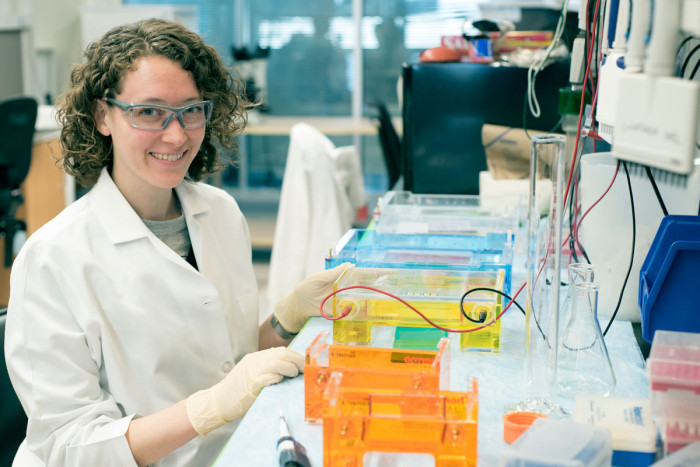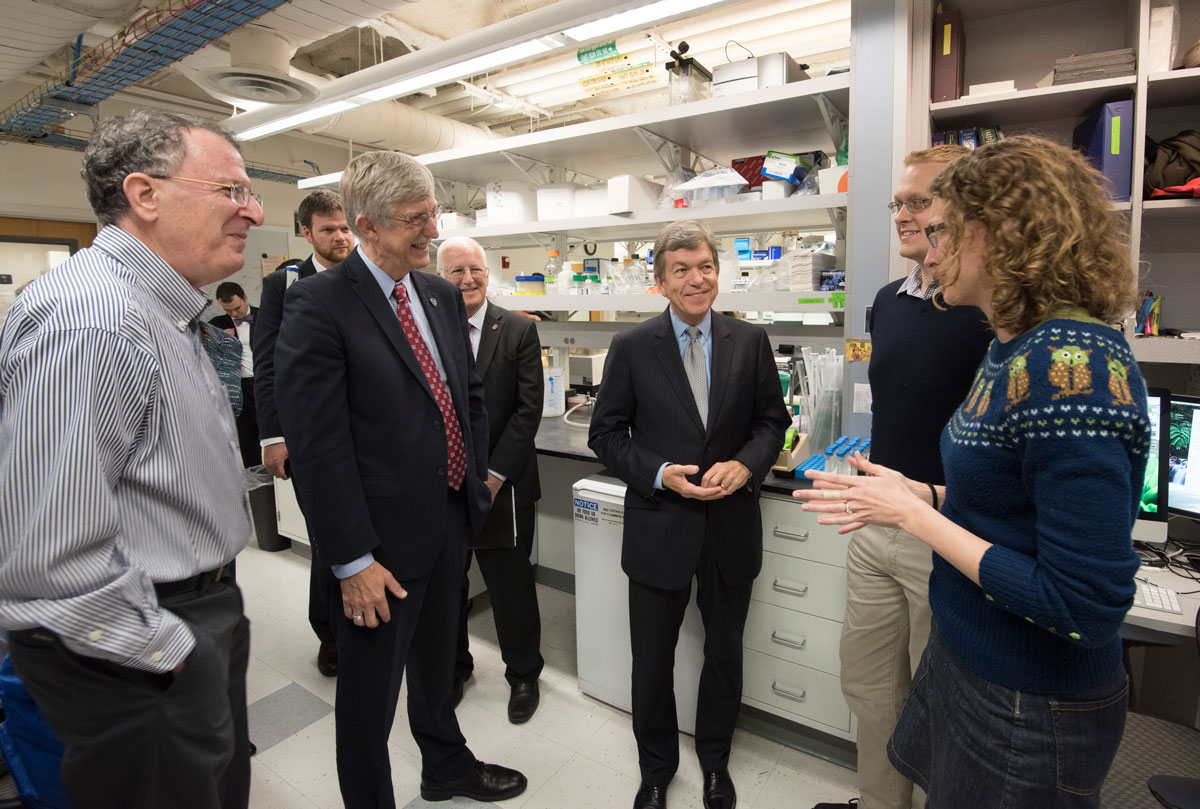Class of 2016: Laura VanArendonk Blanton
Studying molecular genetics and genomics, doctoral student worked to understand connection between gut bacteria and malnutrition
 Robert Boston
Robert BostonLaura VanArendonk Blanton, shown in a School of Medicine lab, will graduate in May with a doctorate in molecular genetics and genomics.
“Standing on the shoulders of giants” is how Laura VanArendonk Blanton describes her accomplishments as a graduate student at Washington University School of Medicine in St. Louis. She will graduate in May with a doctorate in molecular genetics and genomics.
Working in the laboratory of Jeffrey I. Gordon, MD, director of the Center for Genome Sciences and Systems Biology at the School of Medicine, Blanton studied how the effects of gut bacteria reach far beyond the gastrointestinal tract, influencing distant tissues, including muscle, bone and brain. She helped discover how the failure of gut bacterial communities to develop properly after birth is a contributing cause of childhood malnutrition, and identified particular bacteria that direct healthy growth. Her research was carried out in germ-free mice with gut bacteria transferred from either healthy or malnourished young children living in Malawi, a country in sub-Saharan Africa.
The research, which was published in the journal Science, indicates that manipulating the makeup of gut bacteria has the potential to provide new ways to treat and ultimately help prevent childhood malnutrition.
“The work I have done is just another small step toward the ultimate goal of finding solutions to address malnutrition,” said Blanton, who collaborated with researchers in Malawi, Finland and elsewhere.
Blanton, who grew up in Kalamazoo, Mich., studied biology as an undergraduate at Haverford College. She was fascinated by genetics and the power of bacteria. Her interests led her to spend two summers studying pathogenic E. coli strains in West Africa with her undergrad adviser, who is from Nigeria.
When she rotated as a graduate student in Gordon’s laboratory in 2010, Blanton discovered that his lab was a perfect match for her interests. Gordon studies how gut bacterial communities influence overall gut function and shape various aspects of human physiology, metabolism and nutrition.
His guidance inspired Blanton in her research. “Jeff Gordon offers graduate students many opportunities and is an outstanding mentor who cares deeply about the problems of malnutrition,” she said.
After graduation, Blanton will move to Boston to study human genetics as part of a postdoctoral fellowship at the Whitehead Institute for Biomedical Research. Her goal is to investigate how sex chromosomes affect human health.
She is excited about her next step but is grateful for her experience at Washington University. “It’s been incredible,” Blanton said. “Dr. Gordon and the directors of the genetics graduate program have been very supportive, and I have been part of a vibrant, close-knit community of students. I am very happy that I came here.”
Added Gordon: “In addition to her wonderful accomplishments as a scientist, Laura has made wonderful contributions to the life of the university, including her leadership and mentoring roles in the Young Scientist Program that serves high school students in the St. Louis Public Schools. Laura epitomizes the very best of Washington University: a deep dedication to learning, to discovery and to helping others.”
 Robert Boston
Robert BostonClass Acts is a series that recognizes Washington University students who are changing the world through research, service and innovation.
See all Class Acts »






